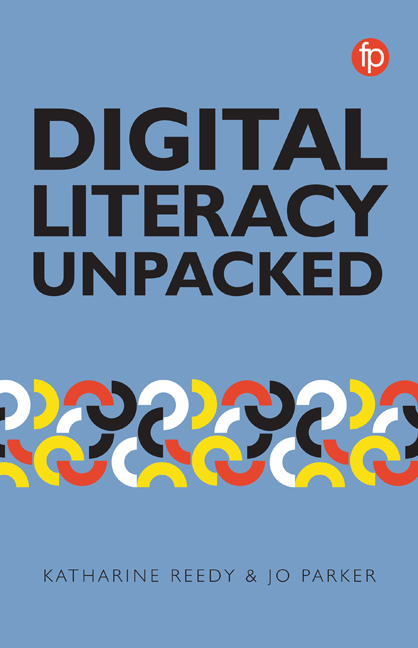Introduction
Published online by Cambridge University Press: 24 September 2019
Summary
Much has been written about the fast-changing world in which we live and the impact that technological change is having on every part of life. Routine services and transactions take place online, whether doing the weekly shop, applying for jobs or accessing the benefits one is entitled to. Students at all stages of education are required to use digital tools and to make sense of online information in order to learn and to be prepared for the workplace. The world of work today may bear little relation to that of tomorrow, so we are educating people not just for current employment, but for jobs that do not yet exist. Alongside all of that, our worldview is likely to be shaped by the interactions we have via social media. This can have positive effects on health, wellbeing and quality of life, overcoming social isolation and loneliness. It also requires the skills and confidence to deal with unwanted behaviour such as cyberbullying, or scams and hoaxes. How can we engage with and make the most of the opportunities that ‘digital’ offers, while avoiding the negative aspects?
The term ‘digital literacy’ has been in common usage for some years, with a variety of interpretations of what it means. These range from basic access through to sophisticated ‘maker’ skills. Many frameworks and models are available, created to support particular constituencies of learners, and often focusing on skills and competencies. More recently, ‘digital literacy’ has evolved into ‘digital capabilities’, encompassing the skills that staff and students in further and higher education settings require to teach, learn and thrive in a digital environment.
Our own experience in UK higher education is lengthy and varied. As educators and information professionals at the Open University we have worked extensively to support distance learners by developing resources and frameworks such as the Open University's Digital and Information Literacy Framework and the collection of online bite-size learning materials in Being Digital. More recently, the focus has been on staff digital capabilities, and rolling out a programme of development for frontline teachers. We are also engaged in supporting academic colleagues to design learning that maximises the potential of the digital environment.
- Type
- Chapter
- Information
- Digital Literacy Unpacked , pp. xxi - xxviiiPublisher: FacetPrint publication year: 2018



